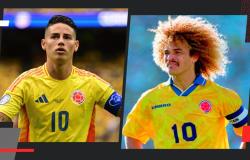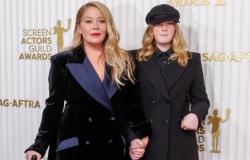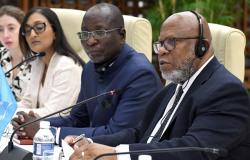International observation missions for the July 28 elections have begun to decline in participation. On the one hand, the regime withdrew the invitation to the European Union (EU) after its decision to ease the policy of sanctions against members of the National Electoral Council (CNE), something unusual. On the other hand, Colombia and Brazil rejected the regime’s invitations to participate as election observers.
Colombia’s decision not to send an Electoral Observation Mission (EOM) is due to the fact that time did not allow it to meet the technical criteria of a qualified observation. For the Maduro regime, the refusal of Colombia and Brazil represents a hard blow, since they were waiting for his visit to try to legitimize the terrible electoral conditions of the process. These conditions include political persecution, the abuse of those who support the campaign of María Corina Machado and Edmundo González, and the control of public powers to tip the balance in favor of the dictatorship.
Today it is impossible for Maduro to win the elections, unless he takes it by force through a fraud of gigantic magnitude. Given this scenario, it is worth asking: what will the Colombian government do? What will Petro and Chancellor Murillo do? How far are they going to accompany Maduro? How do you prepare for Maduro’s intention to ignore the popular mandate?
We are only two months away from the elections, and in the coming weeks anything can happen, because Maduro knows he is in a difficult situation. For this reason, the regime could resort to various strategies: invent a new conflict with Guyana to suspend the electoral process, prosecute the Unity card, continue imprisoning María Corina’s inner circle or even attack the opposition candidate herself. We cannot rule out absolutely anything, because Maduro faces perhaps one of the most complex episodes since he has been in power.
However, even if electoral missions from Colombia and Brazil do not attend, it is crucial that parliamentary groups and social activists from these countries are accredited and attend the July 28 elections. Your presence will be essential to supervise the entire process and report any electoral irregularities.
For democratic forces, the July 28 elections represent the best opportunity for change in these 25 years. Maduro barely has 20% popular support in the polls, while Edmundo González exceeds 50% support. The opposition is united in a single bloc around this candidacy, and citizens are hopeful like never before that they will be able to leave the regime.
But we would make a serious mistake if we assume that the cards are drawn and that victory is imminent. Unfortunately, we do not live in a democracy, and Maduro and his leadership seem unwilling to recognize the voice of the people. Quite the contrary, everything indicates that they are preparing to ignore the Constitution and steal the elections.
To prevent this purpose from being realized, work must be done on two fronts: the Venezuelan people must organize to take care of their votes. To this end, María Corina Machado and the parties of the Unitary Platform are working tirelessly to train and accredit electoral witnesses from civil society, with the aim of them becoming guarantors of the Constitution and democracy. But that alone is not enough. At another level, the international community, especially Colombia and Brazil, must monitor the process inside and outside the country and, even more importantly, activate diplomatic and political channels to contribute to the construction of a political solution, which can only happen by accepting the election result.
On July 28 of this year, not only the future of Venezuelans is decided, but also the destiny of all of Latin America. The victory of the democrats in Venezuela will be the victory of the West in this part of the world.





